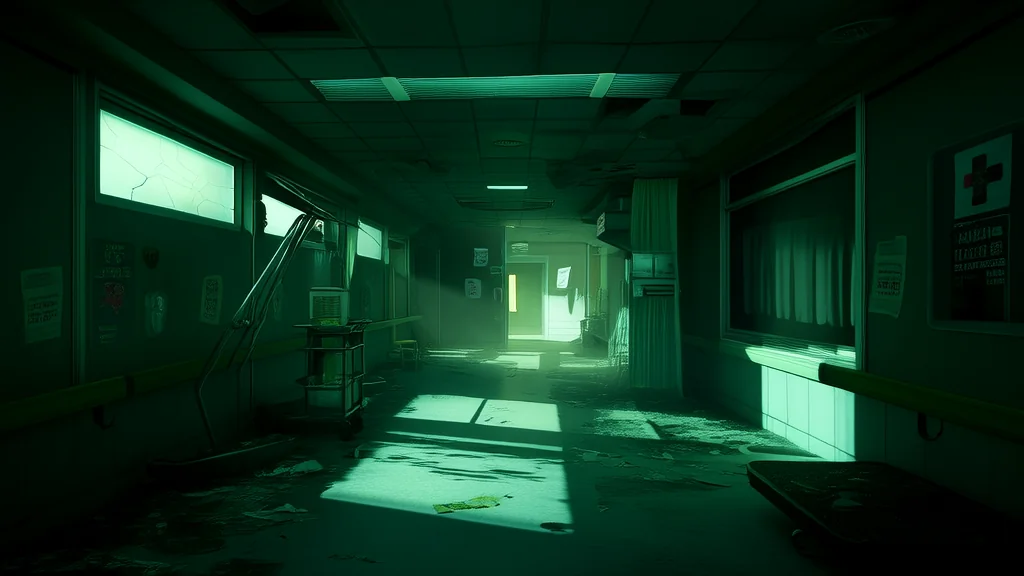🔮 Weird Tales & Urban Legends
The Whispering Walls of the Forgotten Hospital: A Journalist's Descent into Silence

The old hospital had been abandoned for over thirty years, its rusted gates creaking in the wind like the groans of a dying man. No one knew exactly why it had closed, but rumors swirled like smoke through the nearby town. Some said it was due to a mysterious outbreak, others whispered about experiments that went wrong. Whatever the truth, the building stood silent, its windows dark and broken, as if the place itself had forgotten how to live.
One spring evening, a young journalist named Elara found herself standing before the gates, her flashlight cutting through the thick fog that clung to the ground. She had come to investigate the stories, to uncover the truth behind the hospital’s eerie reputation. She wasn’t afraid—she told herself that. But as she pushed open the rusted door, the sound of it scraping against the floor sent a shiver down her spine.
Inside, the air was heavy with dust and something else, something almost metallic. The walls were covered in faded yellow paint, peeling away like old skin. A long hallway stretched before her, lined with doors that all looked identical. She stepped carefully, her boots crunching on the broken tiles. At the end of the hall, a set of double doors stood slightly ajar, as if someone had just left.
She pushed them open and found herself in what must have once been a waiting room. The chairs were overturned, the floor littered with papers that had turned brittle with time. On the far wall, a clock had stopped at 3:17. That detail made her pause. Why 3:17? She didn’t know, but it felt important.
As she moved deeper into the building, she came across a nurse’s station, its desk covered in a thin layer of dust. A single photograph lay on the counter, framed in cracked glass. It showed a group of nurses standing in front of the hospital, their faces blurred by time. But what caught her eye was the man in the back, his face half-hidden behind a curtain. He looked familiar, though she couldn’t place why.
Further down the corridor, she found a storage room. Inside, there were shelves filled with old medical equipment, some of which still had labels in faded ink. Among the clutter, she noticed a small notebook. Its pages were filled with strange symbols and notes written in a hand that seemed too precise, too controlled. One entry read: “They don’t remember. They never do.”
She kept walking, drawn forward by an unshakable feeling that something was watching her. In the basement, she found a series of empty rooms, each with a single chair facing a blank wall. There was no furniture, no signs of life, yet the air was thick with a presence that made her breath catch in her throat.
At the far end of the basement, she found a door marked “Room 102.” It was locked, but the key was hanging on a hook by the door. She hesitated, then turned the handle. The door creaked open, revealing a small, windowless room. In the center stood a single bed, its sheets neatly tucked, as if someone had just left. A mirror hung on the wall, reflecting only darkness.
Elara stepped closer, her reflection staring back at her. But when she blinked, her reflection didn’t. It stayed still, eyes wide, mouth slightly open. She took a step back, and the mirror reflected her again. She turned around, but the room was empty. Her heart pounded as she backed toward the door, her flashlight shaking in her hand.
As she emerged from the basement, the air felt different—lighter, almost expectant. She made her way back through the halls, her mind racing. The hospital had secrets, that much was clear. But what had happened here? And why did the people inside seem to forget?
She reached the entrance and stepped outside, the cold night air hitting her like a wave. As she turned to leave, she saw a flicker of movement in the upper windows. A figure, barely visible, watching her. She froze, but when she looked again, there was nothing.
Back in the town, she tried to write about what she had seen, but the words felt incomplete, like pieces of a puzzle missing their edges. The more she thought about the hospital, the more she felt that it wasn’t just a place—it was a memory, waiting to be remembered. And perhaps, in some way, it was waiting for her to return.
发布于 en
🔗
相关站点
- AI Blog — AI 趋势与技术新闻